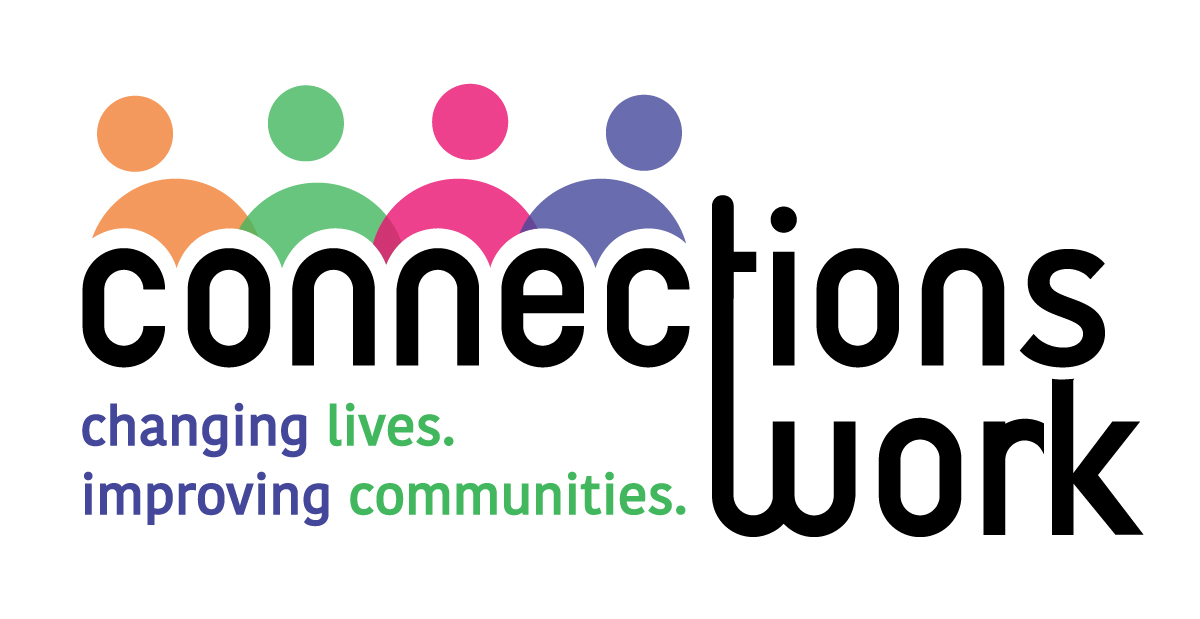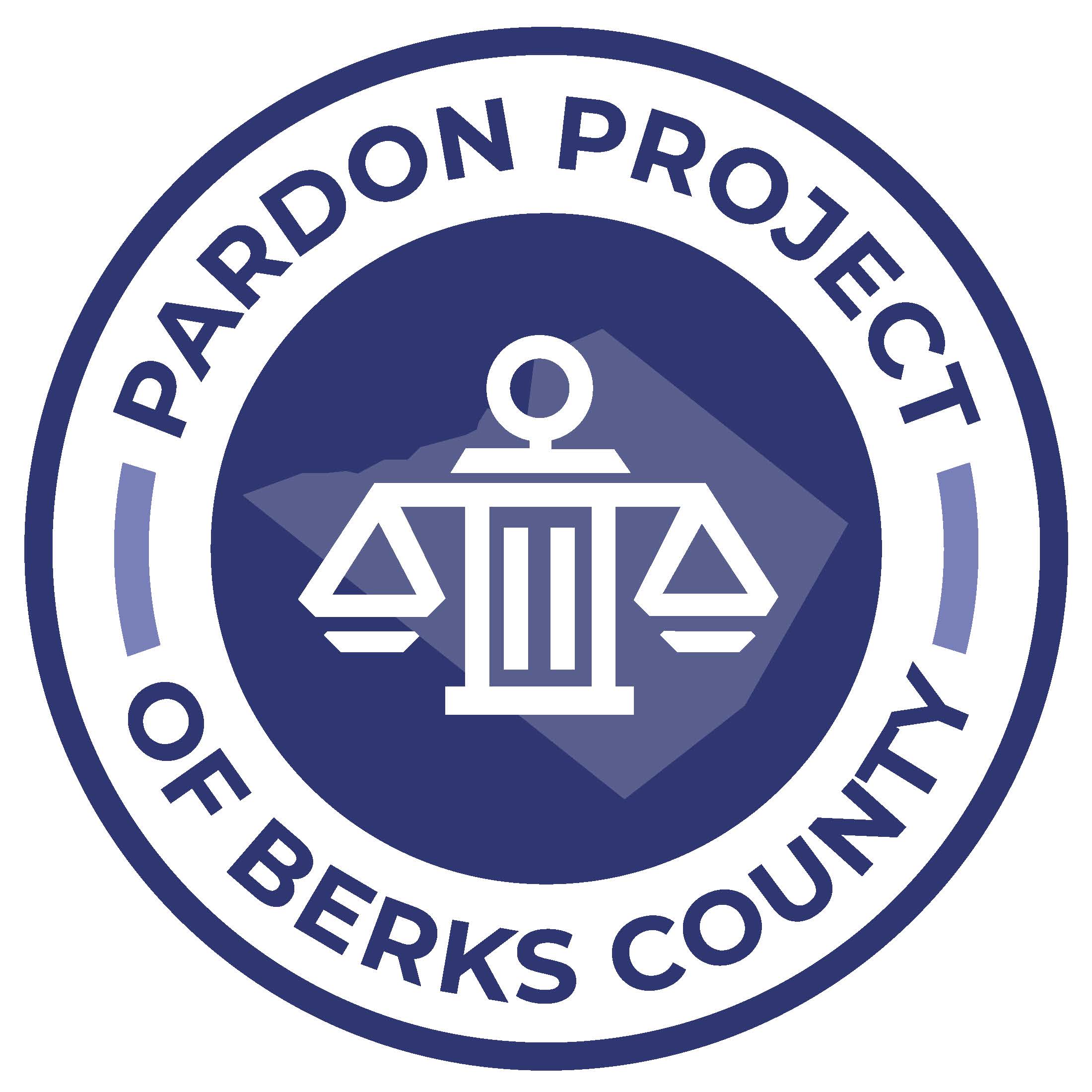Kutztown University 85th Annual Art Education Conference
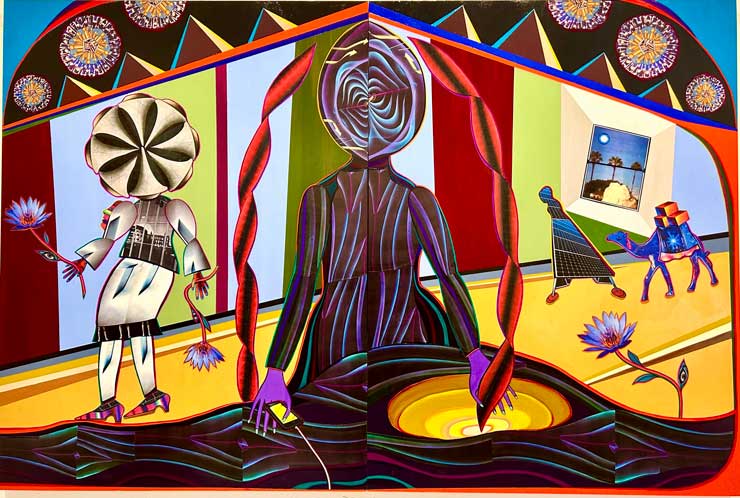
Rhonda Wall
“Along the Nile, With LA Out the Window “, 2023
48 x 72 inches, Paint and Collage on Panel
Social Change at the Intersections of Art/Education
Friday, November 22, 2024, 8am MSU 218 second floor
The conference will highlight scholarship and creative works cemented in social justice practice. As artists, art educators, and art researchers, we confront oppressions as integral to contemporary relevancy. Social change and art/education are both a concept and an action intersecting narrative, symbols, and imagination. We breathe them into being in the world through art education.
Social Change at the Intersections of Art/Education highlights an embodiment of scholarship, research and creative works cemented on the foundation of social justice practice. As artists, educators and researchers, we address and confront oppressions on all levels as integral to accountability, accessibility and contemporary relevancy. Situating our power roles in society as knowledge creators, curators, and facilitators towards social change, art is a manifestation of deep reflective expressions. What are some of the intersections experienced, created, and enacted towards social justice impacting change within art/education? Social change and art/education are both a concept and an action of intersecting narratives, symbols, and images in the imagination. We breathe them into being in the world through art education.
Our keynotes will guide our day:
Former KU art professor, Rhonda Wall, KU alumni and artist, Nile Livingston, and community activist and filmmaker, Shuja Moore.
This is an Act 48 opportunity and will include workshops to pre-register to in the fall of 2024.
Registration Information:
Deadline for Regular Registration: November 8, 2024
Registration will not be accepted after November 15th.
Art Education Conference Fee: $80
Art Education Conference Fee if Received after November 8th: $100
Student Fee for Currently Enrolled Graduate Students: $40.00. Lunch is included
Student Fee for Visiting Undergraduate Students: $20.00. Lunch is not included
Kutztown University Students may attend all sessions for free. Lunch is not included
Check in begins at 8:00 am.
The workshops can't be added without the conference.
If anyone wants to pay with check or Invoice through PO, checks are made payable to Kutztown University and should be sent to KU Presents office. If registering with a PO you can email boxoffice@kutztown.edu with the information of person registering for the conference and workshop.
KEYNOTE SPEAKERS:

Nile Livingston is a Philadelphia native with ancestral roots in the city dating back four generations. She holds a BA in Studio Art from Kutztown University, where she studied large-scale metal fabrication. Livingston works across various media, including mural arts, and has made significant contributions to public art in Philadelphia.
In 2017, Livingston founded Creative Repute, Inc., where she works with a deep bench of specialists in graphic design, website development, and brand identity. In 2020, Creative Repute was awarded a silver medal from the Global Indigo Awards for exceptional work, and it has been recognized by the Philadelphia Business Journal.
Livingston's contributions as an artist have been acknowledged by organizations such as Rad Girls, which celebrates women's achievements, and Mural Arts Philadelphia, the nation's largest public art program. In 2020, she was listed among Philly Magazine's 76 most influential people. Beyond her roles as an artist and business owner, Nile Livingston is an advocate for the transformative power of public art in inspiring change and fostering a sense of belonging within communities.
Title of talk: Visual Artist & Founder of Creative Repute, Inc.
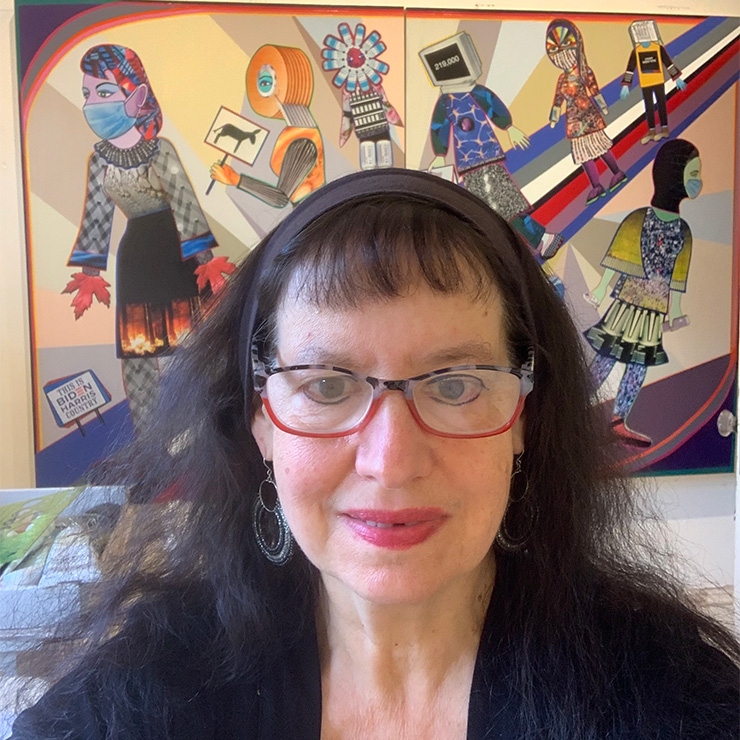
Rhonda Wall was born in Boston, MA. She received her BFA from Rhode Island School of Design and her MFA from Vermont College. Wall has been working in various media including painting, drawing, collage, prints, installation, and performance since 1978.
Wall's work has been reviewed and written about in Artnet News, The New York Times, New York Magazine, Whitehot Magazine, Blouin Art Info, ARTSINBUSHWICK, ARTFCITY, ARTNews, , Art Spiel and Arts Magazine. Her artwork is in numerous public and private collections including The City College of New York, McGraw Hill, Needham Harper & Steers, Lehigh Valley Health Network, the Allentown Art Museum, the University of North Carolina, Nasher Museum of Art at Duke University, Durham, NC, Housatonic Museum of Art, Bridgeport, CT, and previously in the collections of The Aldrich Museum of Contemporary Art, and the Keith Haring Foundation. Wall has had solo exhibitions at the Martin Art Gallery, Muhlenberg College, Allentown, PA, Handwerker Gallery, Ithaca College, Ithaca NY, Spring/Break Art Show curated by Rene Riccardo/ARENA, NYC, Accola Griefen Gallery, NYC, the Allentown Art Museum, Princeton University, Lafayette College, Lehigh University, Cedar Crest College and Mississippi State University.
Wall was a Professor of Art at Kutztown University in the Art Education and Crafts Department for 21 years, teaching 2D and 3D Foundation courses.
Title of talk: A Life In Art with Hope for the Future
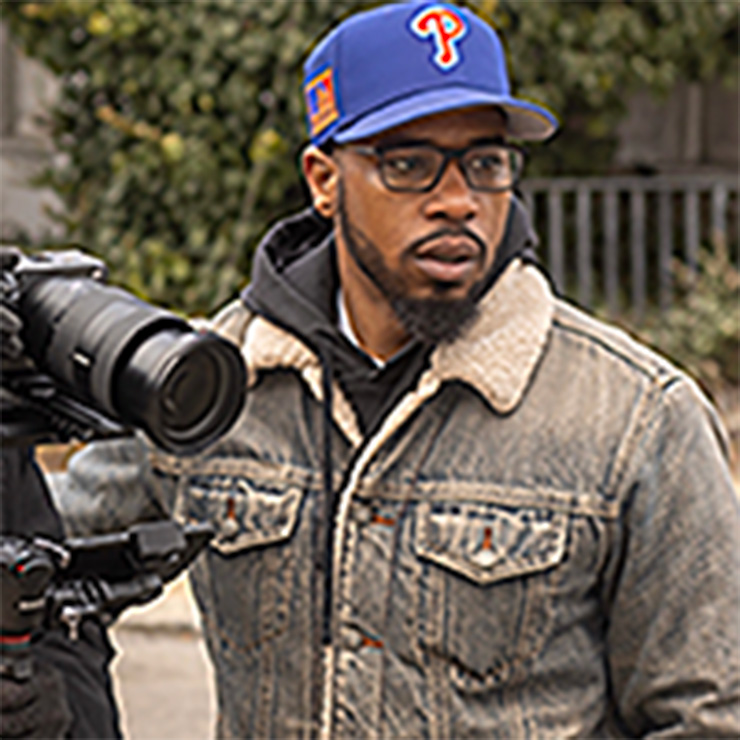
Shuja Moore is a critically acclaimed filmmaker, dedicated community advocate, and leader in West Philadelphia. His commitment to narrative justice in media and empowering people shines through his artistic practice and mission-based work. Formerly incarcerated and now on a journey of redemption and restorative justice, his outstanding contributions have earned him recognition, including being honored as a "Remodeled Citizen" by the Philadelphia Mayor's Office of Black Male Engagement and receiving the Community Service Award from the Division on People of Color and Crime at the American Society of Criminology. In 2024 Shuja was honored as an "Emerging Leader" by Bread & Roses Community Fund. His nonprofit Do Moore Good was awarded "Reentry Organization of the Year" by Philadelphia's Office of Reentry Partnerships. Shuja's latest film, Pardon Me, has won several Best Short documentary awards and continues to impact the criminal justice reform landscape through Pennsylvania and beyond. Title of talk: Pardon Us
See Shuja Moore's website here.
See discussion guide for film "Pardon Me" here.
WORKSHOPS:
-
Layering Meaning: Gelli Plate Printing - Liz Hamilton Quay
Step into the vibrant world of gelli plate printing where creativity knows no bounds! Join me for this dynamic workshop as we dive into the art of monoprinting with gelli plates on paper and fabric. Gelli plate printing is a versatile technique used to make one-of-a-kind prints or fabric designs utilizing acrylic paint. We will explore how to create multi layered compositions with the use of textures and color, stencils, and image transfer. Get ready to discover your newest studio obsession!
Liz Hamilton Quay presently serves as the Assistant Professor of Textile and Materials Studies at KU. Her textiles journey began at KU, earning a BS in Art Education and a BFA in Craft; after which, Liz pursued her MFA at Tyler School of Art. Her work explores innate, visceral emotions associated with the concept of "mothering." Her work has been showcased at WestBeth Gallery NYC, Ceres Gallery NYC, Atlantic Gallery NYC, and Surface Design Association.
Sharadin Studio 121
-
Becoming the racial injustice educator we needed as students: Leveraging the power of art and music - Marlene N. Fares & Jaime L. Brown
Classroom settings should support students in sustaining their personal and cultural identities and allow students time and space to express their narratives through creative works (Buffington & Bryant, 2019). To successfully teach all students, culturally sustaining pedagogy reinforces our teaching to acknowledge, incorporate, and integrate the diverse backgrounds that make up classroom spaces. We will present action-oriented activities we implement in the classroom in creating art and music. Participants will create digital selfie artwork that challenges a single story using personal technology and a favorite photo editing application. Additionally, participants will write Hip Hop lyrics as they are provided with a prompt.
Marlene Nanouh Fares is a daughter of immigrants and a first-generation college graduate. Marlene earned her Ed.D. in Transformational Teaching & Learning from Kutztown University. Marlene has been at Kutztown University for the past 6 years now in the department of Academic Enrichment as an Assistant Professor where she advises Exploratory Studies students. She teaches a First Year Seminar course called "Socially Just Hip-Hop" as well as WGS 100 - Introduction to Women, Gender, and Sexuality Studies. Marlene is a member of multiple committees including the Strategic Planning and Resources committee, Well-being committee, and the Commission on the Status of Women and Gender Issues. Currently, she serves as the APSCUF Social Justice committee Chair and a delegate representing KU at the state level, voting on system-wide policy and action issues. Marlene is a social justice activist. Marlene is co-advisor to the KU Women in Politics club and serves as a mentor for the SISTERs program through the Multicultural Center. Outside of KU, she serves as a school board member for 21st Century Cyber Charter School. Marlene is also the Treasurer of a Political Action Committee in her community, where she advocates for inclusive academic, social, and supportive opportunities for all students and families. Marlene strives to model the words of Mahatma Gandhi “We must be the change we wish to see in the world”.
Jaime Linn Brown, EdD is an artist educator from Shoemakersville, PA with 22 years of field experience. She taught abroad in Sano, Japan in 2010-2011. Her experience in the Japanese education system has provided her with an alternate lens to analyze practices in American education. Jaime earned a BS in Art Education from Kutztown University (2002), a MEd in Art Education from Millersville University (2008), and EdD in Transformational Teaching and Learning from Kutztown University (2020). She is recognized as a Carnegie Project on the Education Doctorate (CPED) featured graduate and Alpha Epsilon Lambda National Honor Society member. Jaime’s research, Socially Just Artmaking: A Practitioner’s Inquiry of Passionate Teaching for Compassionate Action, empowers students to challenge majoritarian stories as they draw upon their own lived experience through self-directed, meaningful artmaking towards art activism. She currently teaches seventh and eighth grade art at Centerville Middle School, in the Hempfield School District (Lancaster, PA). Jaime also serves on the Muhlenberg College faculty as an Adjunct Professor of Education and is a member-at-large on the Pennsylvania Art Education Association (PAEA) Leadership Council.
Sharadin Studio 123
-
Wreck & Rebuild - CJ Matz
This workshop examines the materiality of several common art supplies for use in the “Wreck and Rebuild” visual journal project. “Wreck and Rebuild,” used in an intro-level high school art course, is a semester-long project aimed at providing room for student agency and engaging them in driven-inquiry. Attendees will learn about the project, create a stab-bound visual journal, and take a deep dive into investigating the creative possibility of common art supplies.
CJ Matz (he/him) is a local artist and educator living and working in the Lehigh Valley where he teaches visual arts at Catasauqua High School and Kutztown University’s Arts Academy. Active in state and national art education organizations, he serves as the Secondary Division Commissioner for the NAEA ED&I Commission and the President-Elect of PAEA. CJ holds a B.S. in Art Education and an M.Ed. in Art Education, both from Kutztown University.
Sharadin Studio 205
-
Book Arts as Social Action! - Dr. Amy Pfeiler-Wunder
In this workshop, participants will create mini book structures using a range of materials to amplify and give voice to topics of social action and one’s lived experience. Prompts for engaging in critical conversations (Pfeiler-Wunder & Bergh, 2024) will be integrated into the process of making as we engage in art-based research as “living inquiry” (Irwin, 2024) illuminating the intersection of artmaking and research within our roles as educators among other personal and professional identities and positionalities.
Dr. Amy Pfeiler-Wunder serves as the new associate dean for the College of Visual and Performing Arts, Kutztown University. She taught for 15 years in the Department of Art Education, Kutztown University serving as chair for two years and the master’s in art education coordinator. Her love and joy for teaching included courses in the undergraduate and graduate programs in art education and doctoral courses in transformational teaching and learning in the Department of Secondary Education. She earned her Ph.D. in Teaching and Learning: Art from the University of Iowa and has over 25 years of experience in PreK-Higher Education art education settings.
Sharadin Studio 103-IDEA
-
Cherríe Moraga’s Watsonville and Teatro Campesino: Social Justice on Stage - Dr. Lisa Weckerle
This workshop introduces Teatro Campesino as a form of transformative theatre. Drawing on the use of the teatro campesino in the play Watsonville by Cherríe Moraga, participants learn the structure, techniques, and purpose of actos, short improvisational skits which depict social injustice (Huerta, 2016). Participants will view videos and read scripts of actos, and then work in groups to create their own acto about a social justice issue. Materials: String, Thick Black Markers-10, 5 pieces of posterboard, hole puncher, scissors.
Dr. Lisa Weckerle is an Associate Professor in the department of Communication Studies at Kutztown University. She teaches classes in performance, theatre, and popular culture. Dr. Weckerle writes feminist fairy tales, flash fiction, poetry, novels, and plays. Her new play The Goddess Protection Program will open in November 2024 at Kutztown University.
Sharadin Studio 114
-
Layering the Image - Janna Gregonis
Using collage and image transfer techniques, students can create a 3D tunnel book using Plexiglas. Students will use image transfer to create translucent panels that will be stacked together. Each panel will be powerful and together will tell a story. The workshop will be in the idea studio- Students will see the laser engraver and learn how to rivet the tunnel books together.
Janna Gregonis received her MFA in Metals from East Carolina University and her BFA in Metals from Kutztown University. Janna has taught at Kutztown University, St. John's University, Peter's Valley, the Newark Museum and is currently teaching at the Baum School of Art in Allentown, PA and 92nd Street Y. She is the former Director of the Jewelry department at the Craft Students League at the YWCA of New York City. Janna has worked at the Cooper Hewitt National Design Museum. In January of 2009 she travelled to Cameroon where she taught women infected with AIDS and HIV how to make jewelry.
Sharadin Studio 106
-
Collaborative Workshop - Micheal L. Miller
This collaborative project creating wheat paste designs for the Berks County watershed project.
Micheal L. Miller is a muralist, KU grad, artist and art educator, devoting 28 years in both elementary and high school classrooms. Over the past two decades, Miller has collaborated with numerous community organizations in over 50 public arts projects. Today, Miller teaches and manages a public art studio at the Total Experience Learning Program at Albright College where he directs thousands of individuals of all ages in the creation of public art projects.
Sharadin Studio 206
-
Capturing Expression Through the Figure - Jayne Struble
The human body is capable of conveying experience and emotion in a way that can move and inspire, because of this figure drawing has been used by artists to explore and question the human condition for ages. For this workshop, we will focus on mixed media and experimental drawing grounds to explore ways to capture gestural and sustained expressions of the body. Seeking the flow state of drawing observationally, we will be working with two in-person nude models throughout the workshop. This time is meant to foster your creativity, refresh on proportions and find inspiration from the atmosphere and materials.
Jayne Struble is a focused drawing artist whose work investigates the way visual artifacts, such as video or images, are tangible yet vulnerable signifiers for our memories. Her work has been exhibited across the United States from the Cultural Arts Center in Columbus, Ohio to the Charles A. Hartman Gallery in Portland Oregon and 4Most Gallery in Gainesville, Florida. Struble has attended multiple artist residencies including the Vermont Studio Center, Signal Fire Arts, and The Jentel Foundation. Struble received her MFA from Columbus College of Art & Design in 2014. Currently, Struble is an Assistant Professor at Kutztown University and lives outside of Philadelphia, Pennsylvania.
Sharadin Studio 124
